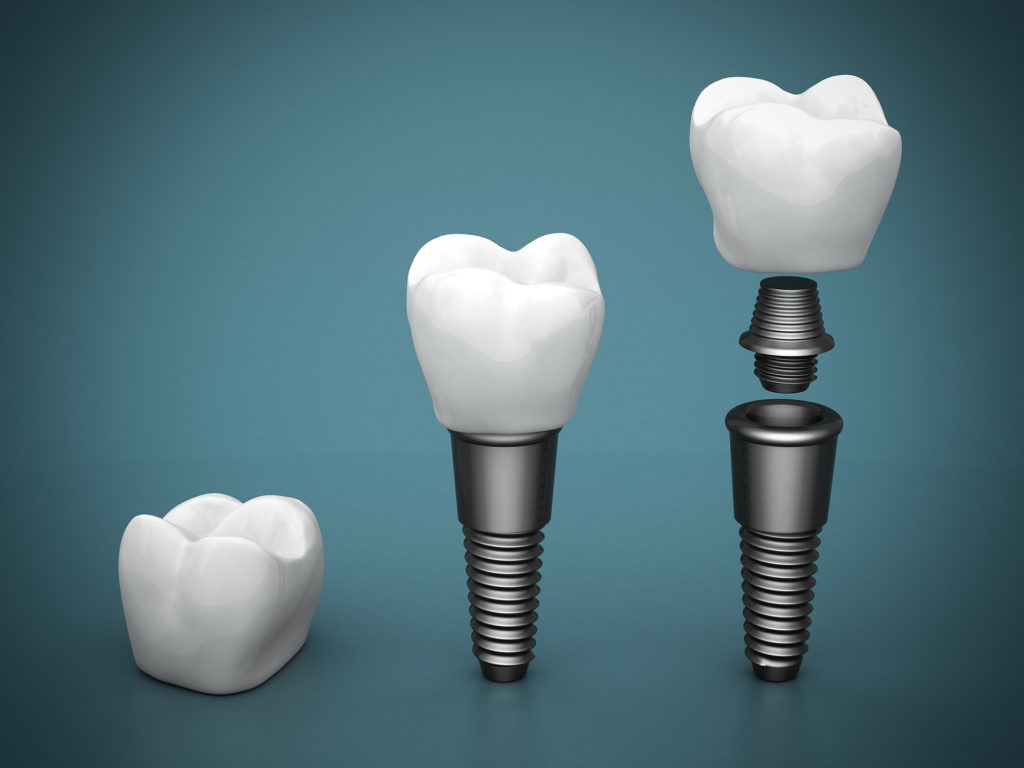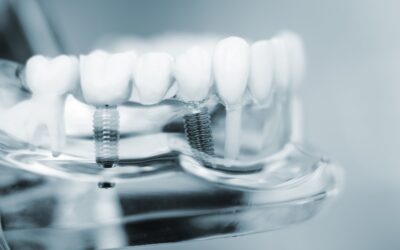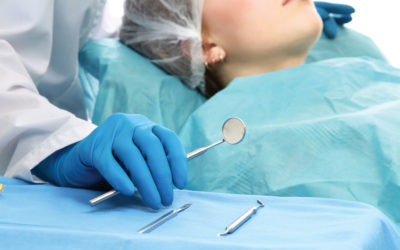How to Care for Your New Dental Implants
Roughly 120 million people in the United States have at least one missing tooth. Another 36 million people have no teeth at all. As you can imagine, missing one or more teeth can be a challenging reality. Everyday tasks such as chewing food and pronouncing certain words can quickly become a challenge. In addition, it can take the shine out of your smile. The good news is that there’s a perfect solution for missing teeth. Dental implants can instantly restore your dental appearance, making it a joy to smile again.
It’s no wonder that 500,000 Americans get dental implants each year.
To reap the full benefits of dental implants, there are certain things you need to do following the procedure. These simple things help ensure a smooth and speedy recovery.
In this blog post, we will discuss post-implant care tips that will help you recover quickly and avoid any potential complications.
Practice Good Oral Hygiene
Post-operation, it is highly recommended to not do any of your routine oral hygiene such as brushing or flossing. You want to avoid this the day/night of your surgery because it can affect the healing process. The following day, continue your normal brushing but make sure to be sensitive and gentle around your implant. Proper oral hygiene is important after post-surgery to ensure healing and prevent infection.
Be sure to brush your teeth at least twice a day and floss regularly. You may also want to use an antibacterial mouthwash to help keep your mouth clean and free of bacteria.
Avoid Potentially Harmful Foods and Drinks
Another dental care tip for people who’ve just gotten implants is to ditch potentially harmful foods and drinks. For a few days following surgery, it is imperative to avoid crunchy, spicy, hot temperature foods as well as alcohol and tobacco products because these can negatively affect the implant and create complications in the healing process.
Cutting these things out of your diet will help you recover quickly and reduce your risk of complications.
Foods You Can Safely Enjoy
Following your surgery, your mouth will most likely be sore which is normal and expected. To avoid further pain or strain on your teeth, eating soft foods is important. Things such as smoothies, soft fruits, room temperature soups, eggs, tofu, cottage cheese, oatmeal, yogurts, mashed potatoes, and other pureed vegetables are all great options.
A balanced diet is important for dental implant healing, so be sure to consume plenty of fruits, vegetables, and lean protein.
Understand How to Deal With Bleeding
Following the dental implant procedure, you may notice some bleeding from your gums. This is normal and nothing to be concerned about.
If you experience bleeding, rinse your mouth with warm saltwater. When brushing, use a soft-bristled toothbrush and avoid flossing around the implant site for the first week or two. If the bleeding persists or gets worse, then contact your surgeon right away.
Tackle Any Swelling
You may also experience some swelling after dental implant surgery which is normal and will usually go away within a few days.
To help reduce the swelling, apply a cold compress to your face for 20 minutes at a time. You can do this several times a day as needed. Just be sure not to put the ice directly on your skin, as this could cause frostbite.
If the swelling persists or gets worse, see your surgeon right away.
Deal With the Pain
Some patients may experience pain and discomfort after dental implant surgery, but this is usually mild and can be managed with over-the-counter pain medications.
If you’re in a lot of pain, contact your surgeon to see if they can prescribe something stronger. The pain should go away within a week or two in most cases.
Take Prescribed Medications
It’s not unusual for your surgeon to prescribe antibiotics after dental implant surgery to help prevent infection. Be sure to take the entire course of antibiotics as prescribed and follow all other instructions from your surgeon.
Note that you may experience some side effects from taking antibiotics, such as nausea, diarrhea, or a rash. If you do stop taking the medication and contact your surgeon or general doctor right away.
Slow Down on Physical Exercise
If you’re an avid exerciser, you’ll need to take it easy for a few weeks after dental implant surgery. Avoid strenuous physical activity and give your body time to heal.
Walking is a great way to get some exercise without putting too much strain on your implants. Be sure to listen to your body and take things at a slow and steady pace.
Make Follow-up Dental Visits
Following your dental implant procedure, you’ll need to make several follow-up visits. These appointments are important as they allow your surgeon to check on your progress and make sure that everything is healing properly.
Be sure to keep all of your follow-up dental appointments and call your surgeon’s office right away if you have any concerns or problems.
Use Your Implants Correctly
Due to their metal composition, dental implants tend to be stronger than natural teeth. However, this doesn’t mean that they’re indestructible. If you use them incorrectly, they’ll eventually fail.
Be sure to avoid biting your nails, chewing on ice, or using your teeth as tools. This will only damage your implants. Instead, use your implants only for chewing food.
Treat Your Dental Implants Well for Fast Recovery
Dental implant surgery is a relatively minor procedure, but it’s still important to take care of yourself afterward to ensure a smooth and speedy recovery. By following these simple tips, you can rest assured that your dental implants will heal fully and quickly.
Are you considering dental implants and would like to see a reliable surgeon for the procedure? Get in touch with us today to schedule an appointment.



